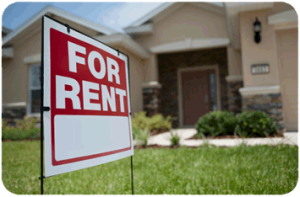7 ways to invest in properties that can make you rich
 The word rich is something which everyone in this world want to be now. There is a human race for being rich and high in status.
The word rich is something which everyone in this world want to be now. There is a human race for being rich and high in status.
Real Estate Market Scenario
Often it happens in real estate market that one property gives you abundance of profit or money returns but sometimes some properties leave you empty pocketed. Here you have to be very careful while choosing a property and then doing the needful after that. It is very important that you make sure that each step in this process is taken after giving it a thought and not just one thought but may be a lot many times. Because here even a single, a very minor mistake can take a heavy toll on your finance. Research a lot. Talk to lots of people already in the business or people owning a lot of properties, simply people who have experience in home buying. You can also look up for some online information if you do not find a suitable person.
Here are some tactics, steps or tips to make sure that you are not ricking your finances in this business. These tips can surely make you filthy rich if you go according to them and still put a little bit of your thought in their implementation.
1) Study: do a brief study of investment, buying a property before taking any step. Always remember knowledge is the key to everything.
2) Research: Research about the properties. Know about the latest brand builders or the leading builders. Look out for their new developments and keep an eye on that project. Also try to know the city’s future thoroughly.
3) Real Estate Portals: For the knowledge, it is important and advantageous for you to have a look at all the real estate portals or the leading real estate portal so that you know new upcoming projects and some flats for resale.
4) Act Smartly: Talk to an agent or an acquaintance in this business for more information on property investment or property buying. As soon as you think a project can profit you, talk to people you completely trust upon or agent is the safest here, look at all the pros and cons of that project. The most important thing here is to act smartly and decided which project will benefit you more and which won’t. Like a project from a brand builder in a very good situation will fetch you more money than a normal project because the name of the builder is very famous and if the surroundings are fine than double bonus.
5) Be Equipped: You should always be equipped with the necessities in buying or investing a flat. If you like a project and the possession has already started or is starting in some days or months then you should have the money and the documents or the loan receipt on which you will get your desired flat, apartment and hence you won’t have any last minute problems.
6) Be Ready: be ready for anything that comes your way, even if it is failure sometimes. If you don’t get a desired property then start looking for other. Do not give up.
7) Checklist: always keep a checklist ready with you with all your preferences and choices so it is easy for you.
Jaipur is a city which is economically well developed and has a good growth level. Also the forecasters have told that jaipur has a bright future. Look for upcoming properties and new projects in Jaipur. Have a look at them on real estate portal. These properties promise a great future.
















